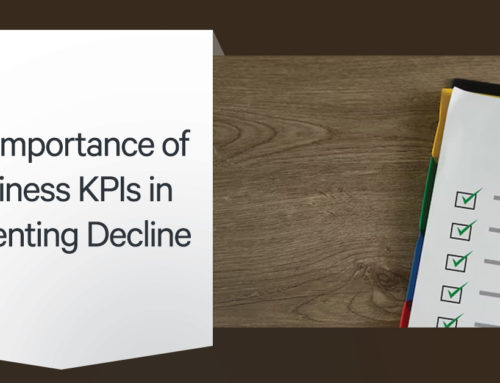In recent years, the UK property market has faced significant fluctuations, with estate agents feeling the brunt of these changes. The increase in estate agent insolvencies is a clear sign the industry is struggling. While economic downturns and market corrections have always been part of the property sector, the current situation presents unique difficulties that estate agents, both large and small, find challenging to overcome. In this blog, we explore why insolvencies in the estate agency sector are rising and what factors drive this trend.
1. The impact of economic uncertainty
One of the primary drivers of estate agent insolvencies is the broader economic uncertainty that has gripped the country. Factors like Brexit, the COVID-19 pandemic and the cost-of-living crisis have all contributed to a fragile economic environment. When the economy struggles, the housing market often follows suit.
Economic instability makes potential buyers hesitant to commit to major purchases, especially in property. Rising mortgage rates have made homeownership less affordable, particularly for first-time buyers, which has led to fewer property transactions. As a result, estate agents are experiencing reduced cash flow, pushing more businesses toward insolvency.
2. Rising costs and pressures on margins
Another factor contributing to the rise in estate agent insolvencies is the increasing cost of running a business in the UK. Inflation has driven up the cost of essential services, office rentals, energy bills and even the salaries of employees. At the same time, estate agents are facing increasing competition, both from traditional high street competitors and online platforms, which has put pressure on profit margins.
Traditional estate agents often need help to compete with the low-cost models of online property platforms, which typically offer more affordable solutions for buyers and sellers. As these platforms become more sophisticated and widely accepted, estate agents have no choice but to cut their fees or risk losing business. This fee reduction further squeezes margins, making it difficult for estate agents to cover their operational costs.
3. Shifts in consumer behaviour
The UK property market has undergone significant changes in recent years, with a notable shift in consumer behaviour. The digital revolution has transformed how buyers and sellers engage with the property market, and many traditional estate agents have struggled to adapt to these changes. Consumers today want greater convenience, transparency and faster services, which online-only estate agents and hybrid models are often better positioned to provide.
This shift towards digital platforms has resulted in a loss of market share for many high-street estate agents. Failure to innovate or invest in the technology required to meet changing consumer demands has left some estate agencies behind the curve. Estate agents who can’t compete with the flexibility and cost-effectiveness of online platforms may lose out on key market opportunities, pushing them towards insolvency.
4. The post-pandemic property market boom and bust
The COVID-19 pandemic brought both challenges and opportunities to the property market. In 2020, the UK government’s stamp duty holiday sparked a temporary boom, with many estate agents reporting record sales. However, this surge was short-lived.
After the stamp duty holiday ended and economic pressures mounted, the market saw a sharp correction. House prices cooled, transaction volumes dropped, and agents that expanded during the boom are now finding it difficult to stay afloat. This stark shift from boom to bust has left many businesses financially vulnerable, fuelling the rise in estate agent insolvencies.
5. The regulatory environment and compliance costs
UK estate agents must comply with various regulations, such as anti-money laundering (AML) and consumer protection laws. While essential for maintaining a fair market, these rules have big compliance costs.
For smaller agencies, the expense of staff training, updated software and regular audits can be overwhelming. In an already tough economic climate, these added costs make it harder for estate agents to stay profitable, increasing the risk of insolvency.
6. Rising interest rates and mortgage challenges
The Bank of England’s rapid interest rate hikes to curb inflation have directly impacted the property market. Higher rates have increased mortgage costs, reducing the number of buyers entering the market.
As fewer people can afford mortgages, property transactions drop, leading to fewer commissions for estate agents and a sharp revenue decline. Some agents have had to close branches or downsize, while others face unsustainable conditions, resulting in insolvency.
7. Increased competition from hybrid and online models
Online and hybrid estate agencies have disrupted the traditional model by offering lower fees and more flexible services. Companies like Purplebricks and Yopa have attracted sellers seeking cost-effective options.
Hybrid models, blending online convenience with personalised service, have further eroded the market share of high street agents. With lower overheads, these newer models pass savings to clients, making it harder for traditional agents to compete. This shift has contributed to the rise in estate agent insolvencies as many struggle to keep up.
8. Strategies for survival
For estate agents feeling the pressures of the current market, several strategies can help prevent insolvency. First, agencies should consider embracing digital transformation by adopting new technologies that streamline operations and improve the customer experience. Offering a hybrid model combining online tools with personalised service could help estate agents remain competitive.
Another key strategy is cost control. By analysing operational costs and identifying areas for efficiency improvements, estate agents can maintain profitability even in a slower market. What’s more, maintaining healthy cash flow by managing debtors and creditors more effectively will be important to get through tricky financial periods.
How estate agents can navigate insolvency risks
The surge in estate agent insolvencies in the UK is the result of a combination of economic challenges, market shifts, and increased competition from online and hybrid models. With rising costs, declining transaction volumes and changing consumer behaviour, estate agents face a tough business environment. However, by adapting to the new market realities, embracing technology, and carefully managing costs, estate agents can increase their chances of survival in these uncertain times.
Ask an expert
If your estate agency is facing financial difficulties, don’t wait until it’s too late to seek expert advice. At Leading Corporate Recovery, we specialise in helping businesses handle insolvency and restructure for future success. Contact our team today to explore your options. Call us on 0800 246 1845 or email us at mail@leading.uk.com. We’re here to help you through this challenging period and provide the guidance you need to move forward confidently.






